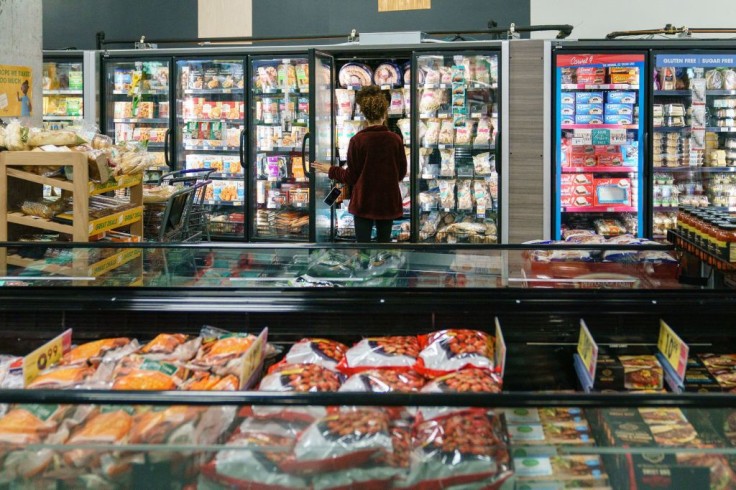
Recovering from food poisoning can be very challenging. As consumers, we often assume that the food we purchase from grocery stores, convenience stores, and local farmers' markets is safe for consumption.
However, a new report by Consumer Reports (CR) has identified the 10 riskiest grocery items based on the most serious recalls and disease outbreaks in recent years.
This report highlights how common it is to find highly risky food that could cause food poisoning or illness to consumers.
According to the Centers for Disease Control and Prevention, almost 48 million people in the United States fall ill every year from foodborne illnesses, with nearly 130,000 individuals being hospitalized, and 3,000 dying annually.
The most susceptible to these illnesses are children under the age of 5, older adults, and pregnant women or those with weakened immune systems.
Therefore, it is crucial to be aware of the riskiest food items and take necessary precautions when purchasing and consuming them.
Top 10 riskiest grocery items that were identified by Consumer Reports:
Here are some possible paraphrases of the information on foodborne illnesses associated with different types of food:
Deli meat and cheeses can harbor listeria, which thrives in cold temperatures and can spread to other items in the deli case or on the slicer. Shoppers should be cautious when buying sliced cheeses, brie, ham, salami, and sausages as these products can be very prone to food poisoning.
Turkey and chicken can carry salmonella, particularly in ground meat, due to unsanitary conditions during raising and processing, according to AARP. Consumers should be careful when purchasing precut, ground, or whole poultry products in grocery stores.
Shellfish, such as oysters, clams, mussels, and scallops, are filter feeders and can accumulate harmful bacteria, viruses, or toxins from their surroundings. Vibrio and Norovirus are common pathogens associated with shellfish. Eating raw or undercooked shellfish can cause food poisoning.
Leafy greens, such as romaine lettuce and bagged salads, are known to carry E. coli and listeria. They are responsible for a significant number of recalls and outbreaks, including deaths.
Raw milk and cheese made from raw milk can contain harmful bacteria like E. coli, Salmonella, and Listeria, as per WebMD. It's recommended to avoid these products and choose pasteurized milk and cheese instead.
Onions, including red, white, and sweet onions, have been linked to salmonella outbreaks. Recently, two large recalls of onions were issued, sickening thousands of individuals and hospitalizing hundreds.
Raw flour has been associated with several E. coli outbreaks, as the bacteria can survive in the dry conditions of flour. Consuming raw flour can lead to serious illness.
Papayas, melons, and peaches can carry salmonella, often due to contamination from animal feedlots or unsanitary harvesting conditions. Consumers should be cautious when buying these fruits.
Sprouts, such as alfalfa, clover, and bean sprouts, can be risky as they require warm and humid conditions for growth, which are also ideal for bacterial growth. They have been linked to several foodborne illness outbreaks.
Berries, including strawberries, raspberries, and blackberries, can be contaminated with norovirus and hepatitis A. Thoroughly washing them before consumption can help reduce the risk of illness.
How to stay safe and avoid food poisoning
Now that you know the top 10 riskiest grocery items, it's important to know how to stay safe. Here are some tips to follow in order to avoid the risk of food poisoning:
Always wash your hands with soap and water before handling food.
Wash fruits and vegetables thoroughly before consuming them.
Cook meat, poultry, and fish to their proper internal temperature.
Avoid consuming raw or undercooked meat, poultry, fish, and eggs.
Store food at the proper temperature to prevent bacteria growth.
Check the expiration dates of food items before purchasing them.
Keep your kitchen and cooking utensils clean to prevent cross-contamination.
In conclusion, being mindful of the foods we consume and how we handle them can go a long way in preventing foodborne illnesses.
While it can be alarming to learn about the 10 riskiest grocery items identified by Consumer Reports, it is important to remember that food safety is ultimately in our hands.
Taking simple precautions, such as washing fruits and vegetables thoroughly and cooking meat to the appropriate temperature, can significantly reduce the risk of illness.
By staying informed and vigilant, we can protect ourselves and our loved ones from the serious consequences of foodborne illnesses.
Related Articles: More Students Getting Hungry as School Lunch Debt Piles Up